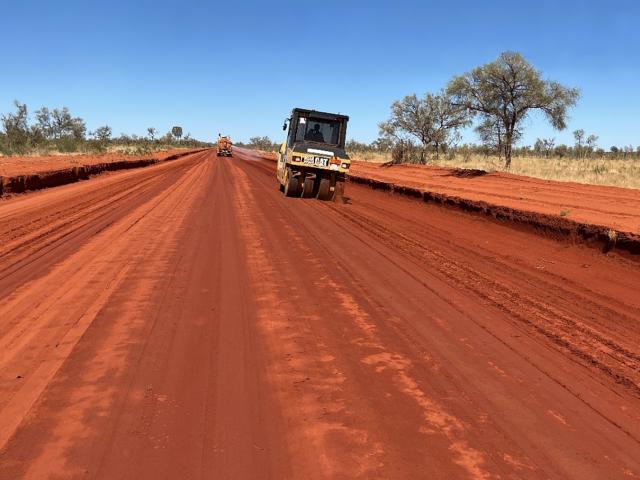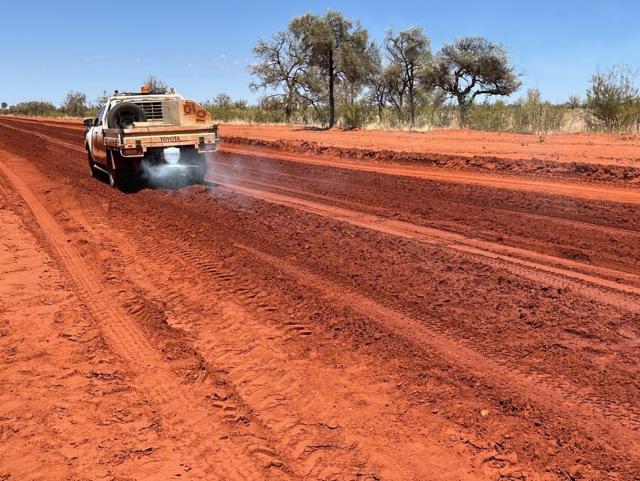Central Desert Regional Council (CDRC) manages 2030 kilometres of local roads over an area of 282,000 square kilometres in the centre of Australia. As most of the connecting roads between communities are unsealed, that’s a lot of grading.
Now the Roads Team are trialling a new technique that could see the roads last longer, require less upkeep and provide a better ride for residents.
PolyCom Stabilising Aid can be used to improve the engineering properties of gravels and soils for road construction, thereby reducing maintenance requirements on unsealed roads.
CDRC decided to trial Polycom on Nyirripi Road, which connects the remote community of Nyirripi with Alice Springs, a total of over 440km. Polycom Stabilising Aid was applied to a one kilometre section of formed sand clay, and a second one kilometre section was constructed with no Polycom Stabiliser Aid added, immediately after and joining the stabilised section for comparison purposes.
The two sections will be monitored for around two years, and regular tri-monthly levels will be taken with digital survey equipment to record any differences in wear of the sections.
This was the first time the CDRC crew had experienced the work of applying, mixing and compacting a Polycom stabilised road base. A crew from ID in Adelaide gave effective support and training into the method and handling of Polycom throughout the two days of the trial, and the work crew enjoyed the experience.
For Polycom to be most effective managing the material at optimal moisture content and a thorough mixing in is critical to the whole process. The crew estimated that the Polycom stabilising process is about double the work of constructing a standard 150mm sand clay base course.
A cost benefit analysis will be completed once the trial is finished, and if the results are positive, driving to and from remote communities in CDRC could be smooth sailing.


















